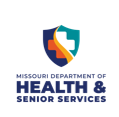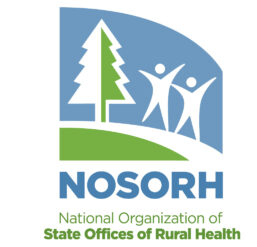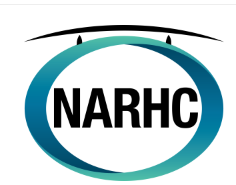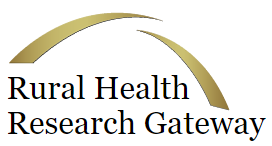June 26, 2024

News Release: Staying Healthy and Safe in the Summer’s First Heat Wave
In 2023, 34 Missourians died due to heat-related illnesses. Heat is the number one cause of weather-related deaths in the United States.
JEFFERSON CITY, MO – The Missouri Department of Health and Senior Services (DHSS) urges Missourians to take precautions as heat and humidity rise to dangerous levels. In 2023, 34 Missouri residents, ranging in age from 11 months to 96 years, died due to heat-related illness.
“Heat and humidity can place a lot of stress on the body,” said DHSS Director Paula F. Nickelson. “Heat exhaustion can come on suddenly, with little warning, and lead to heatstroke which becomes a very dangerous situation.”
This early wave of extended extreme heat may not have given Missourians the time to adjust to higher temperatures. This is especially true for some groups like pregnant women, very young children or older adults.
During excessive heat, Nickelson urges Missourians to check on friends and neighbors, especially those who are elderly and chronically ill. To report a senior citizen or an adult with disabilities who is in need of assistance due to the heat, call the state’s toll-free abuse and neglect hotline at 1-800-392-0210, or make a report online.
People who are working or exercising outside in the heat or have certain chronic health conditions such as heart disease, lung disease or diabetes may need to take extra care in the heat. Medications, as well as those with substance use disorder, can impair a body’s response to heat, making one more vulnerable to the heat. Additionally, those experiencing homelessness are at a greater risk of experiencing heat-related illness.
Never leave a child or pet alone in a vehicle. Even on a cooler day, the temperature inside a vehicle can rise by 20 degrees in 10 minutes and is life threatening to anyone left inside.
Heat-related illness can affect anyone. Take steps to stay cool in the hottest hours of the day:
- Prepare your home—Use air conditioning and change air conditioner filters; cover windows that receive morning or afternoon sun with drapes or shades.
- Stay indoors—Stay in air-conditioned places as much as possible. At home, take a cool bath or shower, use stoves and ovens less often, and keep window blinds and curtains closed to help maintain cooler temperatures. During prolonged periods of high temperatures, use air conditioning – either at home or by seeking shelter in a local cooling center. Don’t rely on fans to keep you cool. Fans are generally okay for providing comfort in temperatures less than 90° F. But at temperatures over 90° F, a fan can make body temperature rise.
- Schedule activities carefully—Plan outdoor activities for morning or evening hours when the temperatures are cooler.
- Wear appropriate clothing—Do not over-dress. Good choices are lightweight, light-colored, loose-fitting clothing.
- Pace yourself—Reduce exercise or physical activity as much as possible during the hottest part of the day and take frequent breaks in the shade or in an air-conditioned place.
Take steps to stay hydrated:
- Drink plenty of fluids—Take a drink break every 20-30 minutes regardless of your activity level, and do not wait until you are thirsty. Water or hydrating sports drinks are best. Avoid sugary, caffeinated and alcoholic beverages, which actually cause you to lose body fluids.
- Wear sunscreen—Sunburn affects your body’s ability to cool down and can cause you to become dehydrated.
Take steps to stay informed:
- Check on friends and neighbors—Especially older adults and individuals with a disability or chronic health conditions, as heat is more likely to affect their health. If you find an emergency situation – call 911. In a non-emergency situation, if a senior or disabled adult is suspected of being in need of assistance due to warm weather, make a call. Make a difference. Call the toll-free Missouri Adult Abuse and Neglect Hotline at 1-800-392-0210
- Know the signs and symptoms of heat-related illness—What to do matters, depending on type of illness occurring. Signs of heat exhaustion may include heavy sweating; cold, pale and clammy skin; dizziness; headache; muscle cramps; tiredness or weakness; nausea or vomiting; or fainting (passing out). If you think you or others are experiencing heat exhaustion, you should stop physical activity and move to a cool place that is preferably air-conditioned, loosen clothing, and sip cool water.
Seek medical attention immediately if you or others are throwing up, your symptoms get worse or symptoms last longer than one hour. Heat stroke is life-threatening and occurs when the body is unable to control its temperature or cool down. Signs of heat stroke may include extremely high body temperature (103°F or higher); hot, red, dry skin with no sweat; fast, strong pulse; throbbing headache; dizziness; nausea; confusion; or loss of consciousness (passing out). You should call 911 right away, as heat stroke is a medical emergency. Then, if you are able, move to a cool place that is preferably air-conditioned. Help lower the person’s body temperature with cool cloths or a cool bath until medical personnel arrive. Do not give the person anything to drink.
- Pay attention to weather forecasts and heat advisories- CDC’s HeatRisk map is one tool that provides local heat risk information to keep you and others safe.
For more information regarding heat-related illness and prevention, visit the websites of DHSS or the CDC.








